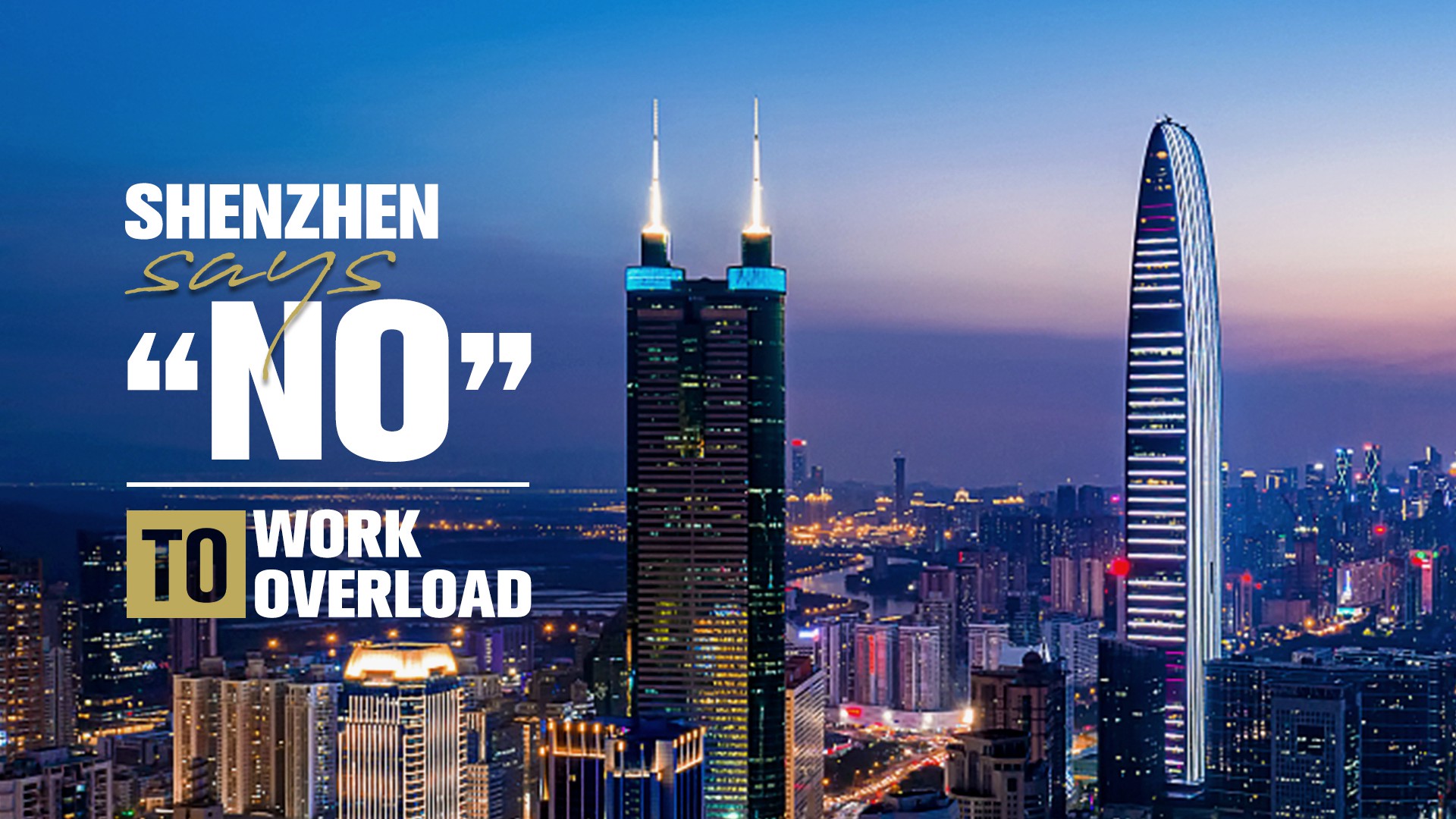
Cover image designer: Gao Hongmei
Cover image designer: Gao Hongmei
"All work and no play makes Jack a dull boy," says an old English saying. But in the southern Chinese city of Shenzhen, "all work and no play," might actually violate the law.
A new health code on health was approved by the local legislature, the Standing Committee of the sixth National People's Congress (NPC) of Shenzhen City at a recent meeting. Paid leave has been written into it as an enforced institution, so as to well protect the physical and psychological health of the employees.
Expected to take effect on January 1, 2021, it is the first local law in China to promote compulsory paid leave. According to the law, employers should make reasonable allocation of the human resources and arrangement for working schedules, so as to allow all the employees, especially those under heavy pressures, to take vacation by turns.
Organizations including the department of human resources and labor union should monitor the implementation of the new law.
Why is the law necessary?

An employee is working overtime. /CFP
An employee is working overtime. /CFP
The new law has triggered nationwide discussions. In fact, the paid leave has been written into the labor law since some 20 years ago, however, for many people, enjoying the sunbathing during the paid leave holidays remains a dream for many Chinese people.
According to a report conducted by the Biz Channel of China Media Group (CMG) on the economic life of the Chinese people, in 2020, each Chinese people has only 2.42 hours for leisure and entertainment per day on average, aside from the time for sleep and work.
In 2014, Wang Qi, a research at Beijing Normal University, told Wall Street Journal that each Chinese worker worked about 2,000 to 2,200 hours annually, comes after only the Mexicans. In 2019, the National Bureau of Statistics (NBS) published a series of data, showing that the employers in Chinese companies work averagely 46.5 hours every week in July, while in the U.S., Japan and Germany, the time were respectively 34 hours, 33 hours and 26 hours.
Shenzhen, the Chinese city with the largest migrant population, is known for its high speed in development and the tolerance it shows towards startups. As the birthplace of many of China's tech giants including Tencent and Huawei, the city has created many economic miracles. But it is also known for the overload work and pressures. Chinese netizens even coined a term "Shenzhen-style working overtime" to describe the working environment.

A building with lights on. /CFP
A building with lights on. /CFP
A survey from the Nanshan Hi-Tech Park in Shenzhen shows that 38.17 percent of the employees working there are unsure about the future of their career, however, due to the fierce competition, many prefer to give up paid leave, fearing it might impact their promotion or a pay raise.
Meanwhile, complaints about working overtime and heavy pressure have never ceased among the Chinese youth in recent years. Most of them took to social media and express their feelings with various of memes and jokes, such as the "working-overtime dog," "996 and ICU," "brick carrier" and the new trending term "laborer."
With several sudden deaths occurred to the increasingly younger people, calls for boycotting working overtime are gaining increasingly larger supporters.
Shen Jianfeng, dean of Law School of the China University of Labor Relations, said that giving up vacation could lead to harmful results to the employees' health, both physically and psychologically. It could also lead to price fall for labor force, and raise risks for industrial injuries.
Liao Zhikai, vice president of the labor union of the Nanshan Hi-Tech Park, said that by the legislation on paid leave, the companies could be forced to improve their institutions and rules, rationalize their allocations of human resources, as well as further protect the rights of the employees.
However, since it is hard to define "overload work," the new law did not specify the legal responsibilities for violation of the law.
Tang Renwu, dean of School of Government of the Beijing Normal University, suggested that the authorities study further into the feasibility of the law, and come up with relevant penalties and punishments for violating the law.

